
Latest Coronavirus Disease COVID 19 News and Research
Advanced analysis offers new insights into immune system’s role in severe COVID-19
By conducting advanced analyses of immune system activation in patients with severe COVID-19, researchers at Karolinska Institutet have managed to identify several cell types that play a key part in the immune response to the new coronavirus and the hyperinflammation seen in severe cases of the disease.
Your favorite store or restaurant is open. How do you know it’s ok to go in?
Just because many businesses are open again doesn't mean the pandemic is over. The coronavirus is still on the loose — actually surging in many locations — which means people have to make serious choices about their health all day, every day.
In rural Missouri, Latinos learn to contain and cope with the coronavirus
Francisco Bonilla is a pastor in Carthage, Missouri, tending to the spiritual needs of the town’s growing Latino community. He's also a media personality, broadcasting his voice far beyond the walls of Casa de Sanidad. Bonilla runs a low-power, Spanish-language radio station from the church.
Test sites quickly attract thousands for COVID-19 vaccine study
Dr. Eric Coe jumped at the chance to help test a COVID-19 vaccine.
Immunothrombotic dysregulation is key marker of disease severity in COVID-19
In severe cases of COVID-19, the infection can lead to obstruction of the blood vessels in the lung, heart and kidneys. Ludwig-Maximilians-Universitaet (LMU) in Munich researchers have now shown that activated immune cells and blood platelets play a major role in these pathologies.
Coronavirus-specific structure in cells may lead to new antiviral strategies
By visualizing coronavirus replication in an infected host cell, researchers may have answered a long-standing question about how newly synthesized coronavirus components are able to be incorporated into fully infectious viruses.
How misinformation undermines Australia's COVID-19 response
The current global climate of misinformation and myths about the origin, cure of, and measures required to deal with the COVID-19 pandemic has mired public acceptance of and compliance with governmental interventions and personal precautions.
Study provides detailed insight into problems faced by patients recovering from COVID-19
Researchers have identified a pattern of longer-term symptoms likely to be experienced by people who were hospitalised with the COVID-19 infection.
Oncologists interview physicians to identify specific communication related to COVID-19
When COVID-19 struck, health care pivoted hard. Any unnecessary procedures or appointments were postponed. For people with cancer, that pivot was particularly shattering.
Immune system derails during severe course of COVID-19
Contrary to what has been generally assumed so far, a severe course of COVID-19 does not solely result in a strong immune reaction - rather, the immune response is caught in a continuous loop of activation and inhibition.
Electric multicookers could be used for sanitization of N95 respirator masks
Owners of electric multicookers may be able to add another use to its list of functions, a new study suggests: sanitization of N95 respirator masks.
Study documents changes in hospital visitation and communication policies during COVID-19
Four months ago, Michigan glowed red on COVID-19 maps. Hundreds of patients packed hospital intensive care units in the southern part of the state, and hospitals statewide rapidly put strict new visitor policies in place to slow the spread of the new coronavirus.
Humans promote diseases from the animal kingdom
The coronavirus pandemic, which has now infected nearly 19 million and killed more than 712,000 people, most likely originated from bats. Just like other coronavirus outbreaks in the past, a spill-over event or zoonosis caused the viruses to jump from animals to humans.
Five biomarkers in blood linked to higher odds of clinical deterioration, death in COVID-19 patients
George Washington University researchers found five biomarkers, medical indicators found in the blood, associated with higher odds of clinical deterioration and death in COVID-19 patients.
Study shows recombination among SARS-CoV-2 strains is already occurring, but remains rare
A recent study by U.S. researchers, currently available on the bioRxiv preprint server, indicates that the recombination events among the viral strains of the severe acute respiratory syndrome coronavirus 2 (SARS-CoV-2) are already occurring – however, considering current levels of viral genetic diversity, they are neither widespread nor readily detectable.
Heat suggested as a therapeutic intervention in COVID-19
Viruses that are contained within a lipid membrane or “enveloped viruses” such as coronaviruses and rhinoviruses can remain active for long periods in cool, dry conditions, which can lead to increased rates of respiratory infections.
COVID-19 in pregnancy - premature birth common
A new study conducted by researchers at Yonsei University College of Medicine, Korea, suggests that while having coronavirus disease 2019 (COVID-19) during pregnancy has little effect on fetal or neonatal mortality, it can be associated with premature birth and sometimes severe outcomes for mother and baby, including death.
KHN’s ‘What the Health?’: Still waiting for that Trump health plan
President Donald Trump keeps promising to unveil a comprehensive plan to replace the Affordable Care Act, but it keeps not appearing.
Surgical delay does not lower overall survival of women with early-stage breast cancer
A new breast cancer study brings reassuring findings for women with early-stage breast cancer who were forced to delay their cancer operations because of the Coronavirus Disease 2019 (COVID-19) pandemic.
COVID-19: BCG vaccine is safe and possibly has a positive effect
The BCG vaccine, a vaccine originally made against tuberculosis, has a general stimulating effect on the immune system and is therefore effective against multiple infectious diseases - possibly also against COVID-19.


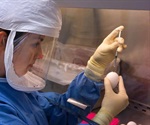

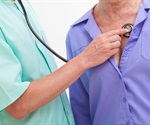
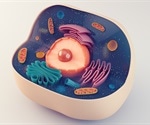


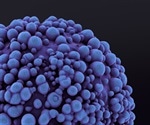
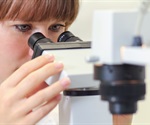
_16e7ee38d08243b28abb6700a49f2962-150x125.jpg)



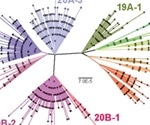
_65f9de0ccbb446efa2d99a01660456de-150x125.jpg)
_13e9534d0b294baab5b764a716de722e-150x125.jpg)

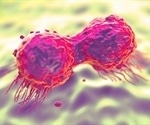
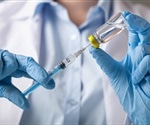
































No hay comentarios:
Publicar un comentario